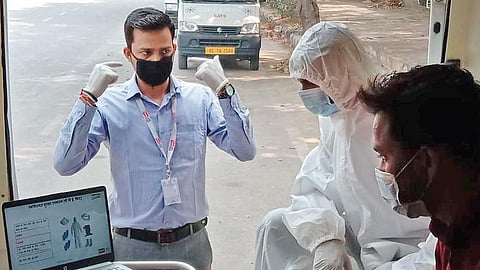

NEW DELHI: The loss of his son because of a delay in getting medical care inspired 31-year-old Shiv Om Singh to train and help others save their near and dear ones. Singh, originally from Dehradun, is a Basic Trauma Life Support (BTLS) and road safety trainer. On March 28 last year, his two-and-a-half-year-old son Shivansh met with an accident and lost his life due to delay in access to medical care and high response time.
Taking inspiration from his loss, Singh decided to devote his time and energy to reducing such casualties. Within 15 days of the tragic incident, he was at the SaveLife Foundation imparting Covidrelated training to medical professionals. “After I lost my son, I realised that access to healthcare in the Golden Hour is very important. I wanted to get back to the field and ensure no one else goes through the trauma of losing a near and dear one due to high response time.
Since May, my team has trained at least 1,000 professionals and I alone have trained 350 personnel,” Singh said. Golden Hour is the 60-minute-period after an accident. Many road safety experts believe that access to healthcare during this period is crucial in reducing fatalities. Singh was also a part of the team which conducted the ‘ambulance delay investigation’ for the Delhi government. Singh and his team developed a special Covid-19 module for training healthcare staff and helped the government in identifying Covid Isolation Centres.
He also carried out a series of Centralised Accident and Trauma Service (CATS) Ambulance inspections on the protocols being followed and helped distribute sanitisation machines to CATS ambulance operators.
“The investigations involved taking feedback from patients, ambulance drivers and Emergency Medical Technicians (EMTs) to figure out the reasons for delays in admitting patients to hospitals and ways in which it can be resolved.
As a result of this and other interventions, the response time of CATS ambulance service improved from 55 minutes to 18 minutes. Moreover, the Delhi government increased the number of ambulances from 160 to almost 600,” Singh said. Piyush Tewari, founder of the SaveLife Foundation, said the investigation has been key in managing the surge in demand for ambulances. “By combining data science with the aggregation of private ambulances, staff training and smart deployment tactics, we have been able to bring response times of ambulances to an average of under 20 minutes.”